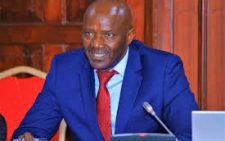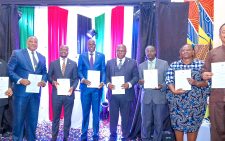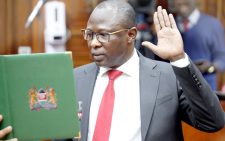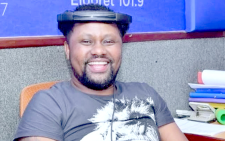Rallying compensation for survivors of sexual violence
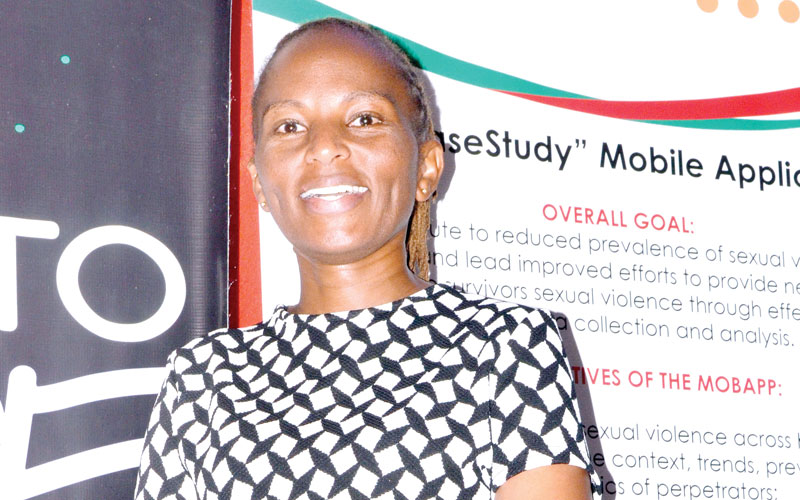
As the world marks 16 Days of Activism against Gender-Based Violence starting today, WANGU KANJA highlights the ups and downs of working with sexual violence survivors
When Wangu Kanja set out to establish the Wangu Kanja Foundation, she was clueless about what she was getting into, but she understood it was important and needed.
This decision was coming from a place of frustration and need for restoration of dignity for her and many others who had been violated.
The journey goes back to 2002 when she experienced a brutal ordeal. She was caught up in a carjacking that turned into a rape attack.
This violence and the aftermath informed her stance to create a safe space for survivors of sexual violence. She couldn’t stand the stigma and victim-blaming which allowed perpetrators to walk away without being held accountable. She wanted that to change.
“The stigma and perception that the victim is always at fault is a major hindrance to fighting sexual violence. It does not address the actual problem; instead, it absolves abusers, leaving survivors more traumatised,” she says.
Wangu was intimidated by the long and arduous process of reporting the attack and, therefore, didn’t take that route.
Then, what she needed most to find healing and the first step was coming to terms with what had happened and getting professional help. She also had to make peace with not seeking legal justice.
“Coming to terms with sexual violence as a survivor doesn’t mean you have to erase it from your life by pretending it never happened. That doesn’t work. For me, it meant that I had to integrate it into my life to work through it,” says Wangu.
Put self first
Her healing process has been intense, has taken years, but has been effective thanks to professional help she received. It has enabled her to not only be sensitive to her needs but also identify triggers that take her back to the attack.
It also helped her handle challenges that come with the day-to-day tasks of addressing sexual violence. Women, men and children come to her foundation in search of support, and for her to effectively assist them, she had to first take care of herself and heal.
“The trauma is a heavy burden to carry and one must get proper psychological therapy. You need professional help from people trained in providing therapy to get through the journey. Healing takes time; for me, it took 12 years,” shares the founder.
While some individuals turn to their faith in search of healing, Wangu states not all religious leaders have the professional skills to deal with this kind of trauma.
Wangu is not professionally trained in caring for survivors of sexual violence.
Her contribution was to set up a fort for those who needed it and partner with organisations to provide necessary medical, psychological and legal redress.
On the legal side of things, Wangu says they are in meaningful discussions with the police service and are crafting reforms on handling such cases by getting trained officers to offer support for survivors. Creating this bridge builds trust and safety, which will encourage more people to report abuse.
To ensure the effectiveness, the foundation in August 2019 launched a mobile application for reporting and documenting cases as an additional tool to its short-code service.
“We wanted a web portal to track cases, that is why we insist on a partnership with the Interior ministry on how to successfully roll it out,” she says.
The data collected from the application will inform strategies and planning around sexual violence response.
Call for reparations
Through its Survivors’ Network, Wangu Kanja Foundation is present in all 47 counties. Anyone who knocks on their door gets comprehensive care and support required regardless of their gender, religion or sexual orientation.
The foundation has also tirelessly lobbied for reparations for the sexual violence survivors of the 2007/08 post-election violence.
They drafted and presented a reparations’ agenda to the office of the Attorney General, detailing guidelines on awarding survivors Sh10 billion as a restorative fund.
“We are looking at survivors who were raped and gave birth as a result. The government is supposed to take care of the children.
It’s their responsibility to have that accommodated under the treasury,” says Wanja, who adds that they will keep pushing for it until it successfully goes through.
